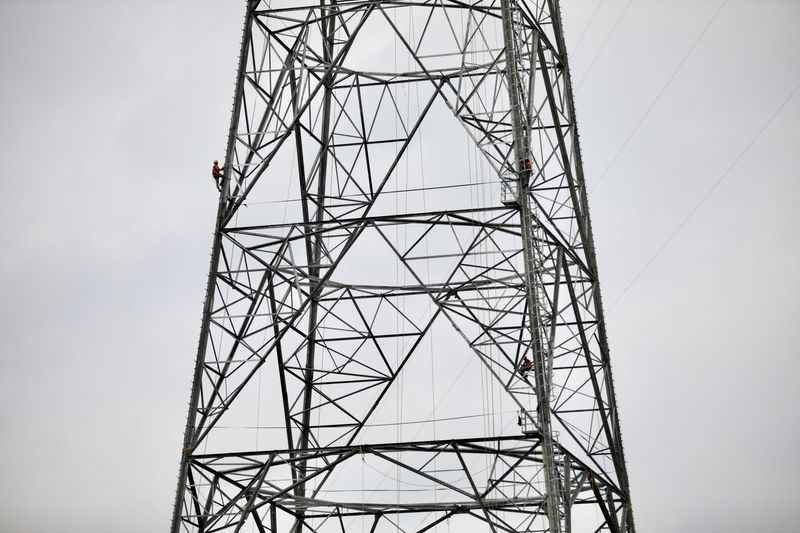By Sudarshan Varadhan and Carman Chew
SINGAPORE (Reuters) - Bangladesh is facing its worst electricity crisis since 2013, a Reuters analysis of government data shows, due to erratic weather and difficulty paying for fuel imports amid declining forex reserves and value of its currency.
With forecasts for more heatwaves and the peak power-use months of July-October approaching, the country's power minister recently warned that outages in the south Asian country, home to 170 million people, could continue in the coming days.
Bangladesh, the world's second-largest garments exporter behind China supplying global retailers including Walmart (NYSE:WMT), H&M and Zara, has been forced to cut power for 114 days in the first five months of 2023, a Reuters analysis of power grid data showed.
That compares with 113 days in all of 2022.
Power cuts have been most widespread in the late evenings and early mornings, data from the Power Grid Co of Bangladesh showed, with residents and small businesses complaining of unannounced power outages lasting 10-12 hours.
Supply was short of demand by as much as 25% early on Monday, the data showed.
The overall supply deficit widened to an average of 15% in the first week of June, an analysis of the data showed, nearly three times the average 5.2% shortfall in May.
Fuel shortages are the main reason for the supply shortfalls, government data shows.
On Monday, nearly a fourth of the 11.5 gigawatts (GW) of the country's gas-fired power plants and about two-thirds of the 3.4 GW of coal-fired capacity were shut for the day because of a lack of fuel, according to the national grid operator's daily report on its website.
Over 40% of the 7.5 GW of power plants running on diesel and fuel oil could not operate because they lacked fuel, according to the operator.
Bangladesh's state petroleum firm wrote to the power ministry in late April and early May, warning of inability to pay Sinopec, Indian Oil and Vitol for fuel supplies due to a shortage of U.S. dollars, as well as an "alarming decrease in fuel oil reserves."
The value of Bangladesh's taka currency fell by over a sixth during the 12 months through May, and dollar reserves declined by a third to a seven-year low in April.
Power output from coal and liquid fuels has risen at the expense of gas-fired power generation, resulting in higher average power costs, the data showed.
The share of natural gas in power output fell in 2022 because of dwindling local reserves and a lack of long-term deals with global suppliers, although it has risen in the recent months as LNG prices fell. The country recently struck a 15-year LNG deal with QatarEnergy.

Power imports by the energy hungry nation, which has very little renewable capacity, held steady at less than 10% of total supply, the data showed.
Coal dependence for power rose to over 14% in the first five months of 2023, compared to about 8% in all of 2022, while the share of fuel oil and diesel in Bangladesh's generation mix rose in 2022 to the highest level in over a decade.